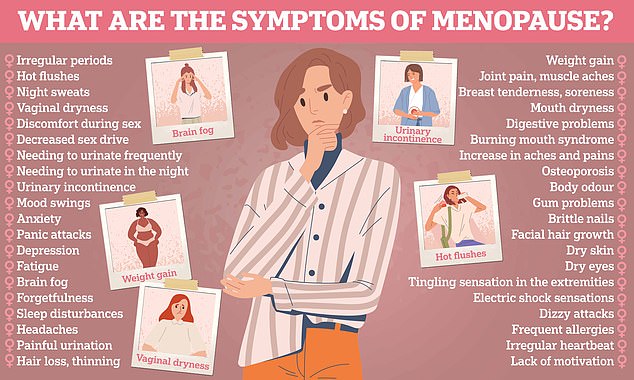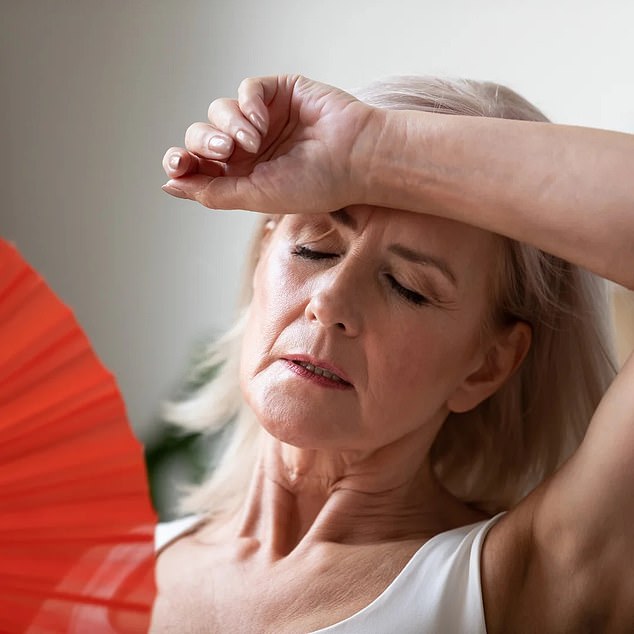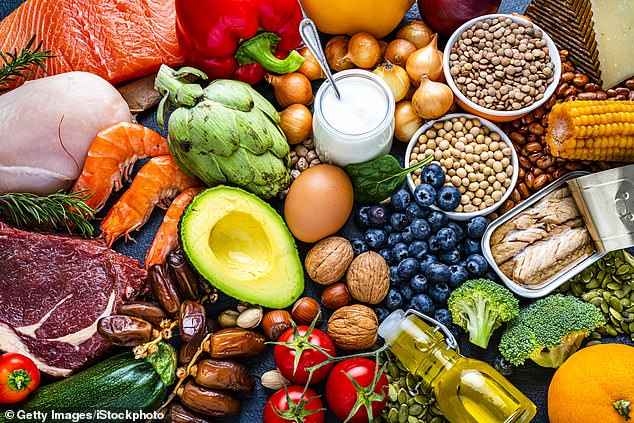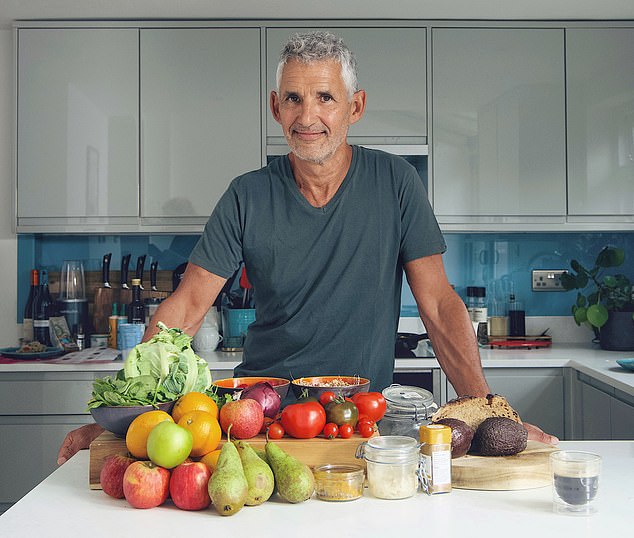Diet guru Professor Tim Spector has today launched a new feature on his popular app Zoe that aims to help women improve the debilitating symptoms of the menopause.
Announcing the tool on X, the scientist said it would give middle-aged women “a say in talking about their health” after having been “widely ignored”.
MenoScale, the first symptom tracker of its kind, aims to help women eat to combat their hot flashes through dietary changes.
It includes a nutritional guide that breaks down the types of foods that are beneficial for those experiencing severe symptoms and those that are not.
Professor Spector told MailOnline that the new specialist feature could help reduce menopausal symptoms by 44 per cent, and perimenopausal symptoms by 35 per cent, according to preliminary studies by Zoe.
Diet guru Tim Spector (pictured) today launched a new health app aimed at helping women improve the debilitating symptoms of menopause.

The research followed the symptoms of 4,000 women who followed the ZOE diet for 200 days.
The data reported a significant reduction in the most challenging and prevalent symptoms of menopause, including a reduction in depression and anxiety.
The biggest impact was on mood swings, with a 44 percent reduction among menopausal women, compared to the period before starting the diet.
Among perimenopausal women (those in the early stages of menopause), there was a 35 percent reduction in mood swings.
The severity of fatigue and sleep disturbance symptoms experienced by postmenopausal participants decreased by about 38 percent.
Meanwhile, in perimenopausal women the intensity of these symptoms decreased by 32 percent.
Postmenopausal women who followed the ZOE diet also reported that the number of night sweats, hot flashes and chills they experienced was reduced by more than a third.
“Becoming a ZOE member and following ZOE dietary advice has been shown to help reduce the ZOE MenoScale score (menopausal symptoms) in both perimenopause and postmenopause,” Professor Spector told MailOnline.
“I’m particularly excited to see the reduction in scores on the psychological symptoms group, which showed a 35 percent reduction in perimenopausal and 44.2 percent reduction in postmenopausal scores.”
The new menopause features will be included as part of the current £25-a-month ZOE Diet subscription. They will help women access medically-backed advice on how to make dietary changes that can address both perimenopause and menopause.
Similar to the main ZOE program, users who sign up are sent a blood sugar monitor to wear for up to two weeks to see how their bodies react to the carbohydrates in their diet.
There is also a home kit for finger-prick blood testing and stool samples that users send to a lab for analysis. The results are used to measure gut health and metabolism.
Based on these results, ZOE scientists offer personalized nutritional guidance that may include reducing meat consumption and eating more oily fish or consuming more legumes, vegetables and nuts.
For the new menopause feature, users answer 20 questions about their symptoms and the Menopause calculator provides a numerical score out of 100. This is used to help understand the frequency and impact of their symptoms.

Postmenopausal women who followed the ZOE diet also reported that the number of night sweats, hot flashes and chills they experienced was reduced by more than a third.

The NHS recommends eating a calcium-rich diet, with foods such as milk, yoghurt and kale, to keep bones healthy. This is because the menopause increases the risk of osteoporosis, a condition that affects fragile bones.
Speaking about the new feature, Professor Spector wrote in X: ‘When women have spoken out about the challenges of midlife, they have been largely ignored.
‘With this new tool developed by our scientists, women will once again have a voice and a vote when it comes to talking about their health.’
For most women, menopause begins between the ages of 45 and 55. It causes periods to stop and levels of the female sex hormones estrogen and progesterone to decline.
Although some women only have a few, if any, symptoms, others experience hot flashes, trouble sleeping, mood swings, and mental confusion, which can last for months or years and may change over time.
To help combat this, around two million women are prescribed hormone replacement therapy (HRT), which contains hormones identical to those their bodies produce, on the NHS.
Hormone replacement therapy, usually administered through patches or as a gel, spray or tablet, has been shown to be safe and effective.
But the NHS also recommends regular exercise and a healthy diet to help manage symptoms.
The NHS recommends eating a calcium-rich diet, with foods such as milk, yoghurt and kale, to keep bones healthy. This is because the menopause increases the risk of osteoporosis, a condition that affects fragile bones.
She also recommends including exercises such as walking, running and dancing and resistance training such as lifting weights, to help protect against weak bones.


